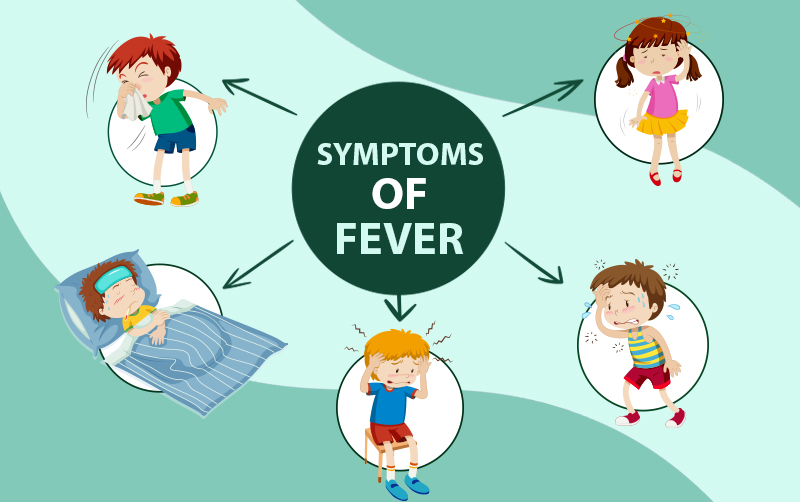2. Sudden High Fever
A sudden high fever is recognized with a sudden increase in the body temperature which can eventually cause tiredness, fatigue, body ache and headache. Dengue fever is the most recognized instance of sudden high fever.
Temperature Range: Recognized by sudden high body temperature
3. Continuous Fever
Continuous fever is a medical condition.During this condition, the body temperature remains above nominal levels throughout the day. It normally doesn’t fluctuate more than 1° C. It is typically caused by bacteria. It is often associated with other health concerns including pneumonia, urinary tract infection (UTI), and typhoid fever.
Temperature Range: The variation between maximum and minimum temperature in 24 hours in this type of fever is less than 1°C or 1.5°F.
4. Remittent Fever
Remittent fever is fairly similar to continuous fever. The high body temperature normally remains high throughout the day in this case. A person can experience more than 1° C temperature fluctuation in this condition. It is typically a result of a bacterial infection. It may also be caused by a medical condition known as infective endocarditis that causes inflammation in the inner tissues of the heart.
Temperature Range: Daily variation in temperature is more than 1°C or 1.5°Fin 24 hours, which is also the main difference as compared to continuous fever.
5. Rheumatic Fever
Rheumatic fever is caused by the streptococcal bacteria. This bacterium initially causes throat infection. This infection, if left untreated, can lead to painful fever. Some of the common symptoms of Rheumatic fever include white spots on the tonsils and tongue, inflammation with headache.
Temperature Range: A high temperature of 38C or 100.4Fahrenheitor above
If you are suffering from any of these kinds of fever, you need to get in touch with a general physician.
Treatment of Fever
It is important to understand that a fever is only a symptom, and not an illness. A doctor can diagnose a fever by checking a person’s body temperature. But a doctor will first and foremost try and need to diagnose the reason for the fever.
For this purpose, they will examine the individual, ask them multiple questions about any other symptoms they have and also their medical history.
To confirm a diagnosis, the doctor may recommend:
- A blood test
- A urine test
- Imaging tests
The further course of treatment prescribed by the doctor will depend on the cause of the fever.













